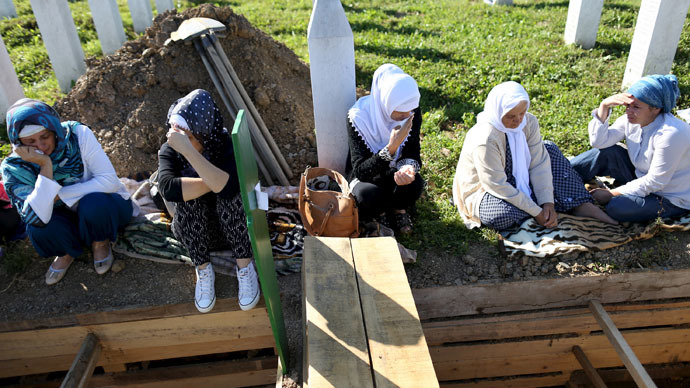Srebrenica: A tragedy against peace and reconciliation

On 8 July, the UN Security Council discussed a draft resolution regarding the tragedy at Srebrenica, proposed by the UK.
The Russian delegation voted against it while China, Angola, Nigeria and Venezuela abstained. As a result, the document was not adopted.
We regret that the British delegation insisted on voting despite our repeated warnings, backed by concerns voiced by Balkan countries, about the possible consequences of adopting a document that could only provoke tensions. Rather than seeking national unity and reconciliation in Bosnia and Herzegovina, the draft was politically motivated and unbalanced. If adopted, it could have had a negative impact on inter-ethnic and inter-religious relations not only in Bosnia, but across the Western Balkans as a whole.
The region saw many crimes committed during the Balkans crisis, including war crimes and crimes against humanity, in which people of different ethnicities and faiths were killed. We have been consistently advocating the investigation of all wrongful acts committed in Bosnia and Herzegovina against all ethnic groups including Bosniaks, Serbs and Croats, so that the guilty receive the punishment they deserve. The resolution, if adopted, would have placed the blame for the tragic events exclusively on the Serbs, disregarding the fact that the Serbs were also victims.
Furthermore, Russia has paid attention to the lack of consensus on this issue in Bosnia and Herzegovina itself. There was no agreement on the draft resolution in the country’s parliament or Presidium. This has reinforced our belief that adopting the resolution would only reopen old wounds, preserve ethnic tensions in the Balkan communities and further delay the achievement of a lasting peace.
The region is facing an enormous challenge – to bring reconciliation and peace to Bosnia and Herzegovina. Acting constructively, Russia submitted an alternative draft resolution to the UN Security Council. Unlike the British proposal, its logic was focused on the future and would encourage all sides concerned to work towards national reconciliation and overcome the heavy legacy of the Bosnian tragedy as soon as possible.
Unfortunately, our British counterparts were intransigent. This attitude has led to an utterly unnecessary division in the Security Council. The chance to give Bosnia a proper positive signal has been missed. Yet, even the latest edition of the Economist warns against attempts to gain political capital on the events in Srebrenica. The newspaper correctly states that such attempts can lead to a new wave of division in Bosnia and Herzegovina and the whole region. It notes alarming signs of various forces drawing on the divisive WWII past.
Russia will continue to work robustly and consistently to implement the Dayton Agreement, the 20th anniversary of which we will mark later this year. We are ready to contribute towards normalizing the situation in the Balkans, creating a real security system and strengthening the atmosphere of trust and cooperation in the region.
The statements, views and opinions expressed in this column are solely those of the author and do not necessarily represent those of RT.
The statements, views and opinions expressed in this column are solely those of the author and do not necessarily represent those of RT.













